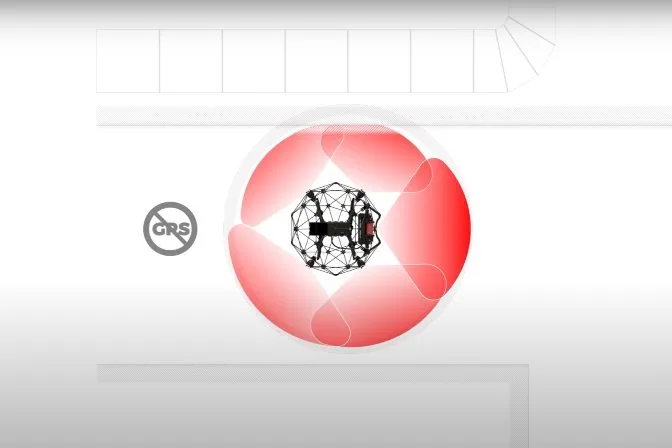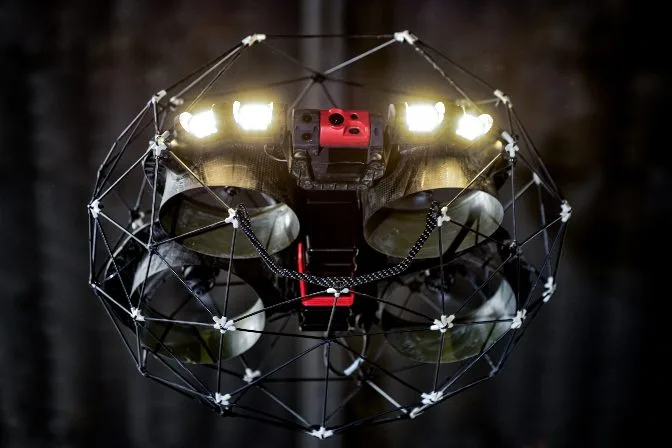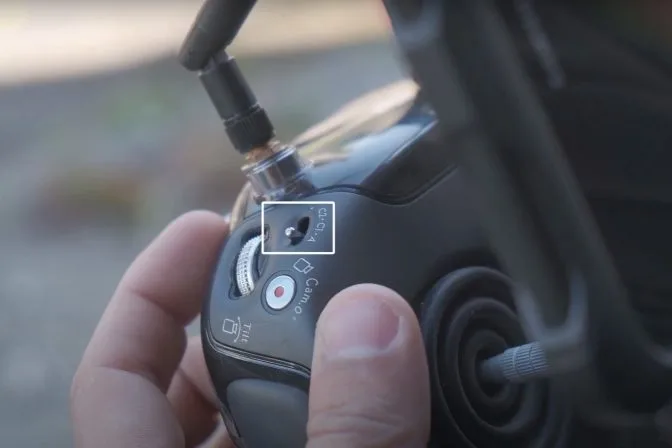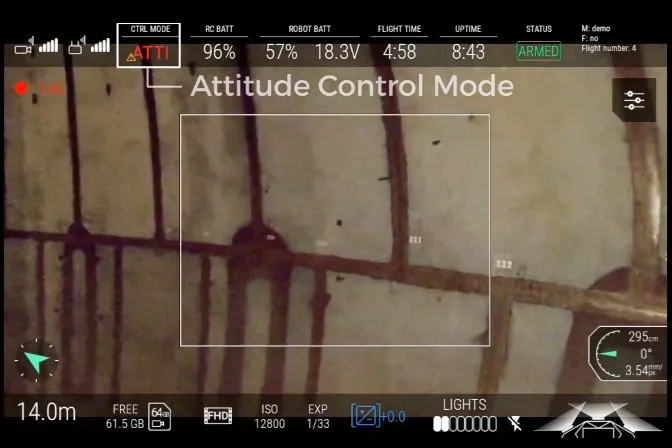ATTI mode, short for Attitude Mode, is the most hands-on way to fly a drone. It gives the pilot full control over the aircraft's orientation without relying on GPS or optical sensors. While modern drones come with advanced automated features, there are still situations where ATTI mode is essential. As drone technology continues to evolve, many pilots have become accustomed to automated flight features that simplify the process. However, in certain environments, these systems can fail or be unavailable, making manual control necessary. This is where ATTI mode comes into play. One of the main scenarios where ATTI mode is crucial is during indoor inspections. In such cases, GPS signals are often weak or completely absent, and optical sensors may struggle to provide accurate data. When this happens, switching to ATTI allows the pilot to take full control, ensuring the drone remains stable and maneuverable. No GPS zone ATTI mode is a flight setting where the drone operates without GPS or visual positioning assistance. In this mode, the pilot must manually control the drone’s attitude, including its pitch, roll, and yaw. Unlike GPS or OPTI modes, there are no automatic corrections or stabilization systems to assist the pilot. This means the drone can drift or lose altitude if not handled carefully. For this reason, it's important for all drone pilots to understand how to operate in ATTI mode, especially when flying in areas where GPS is unreliable or unavailable. [Related read: What Is a GPS-Denied Drone?] While not all drones offer an ATTI mode, it's particularly useful for indoor operations and in GPS-denied environments. Drones used for inspecting tunnels, sewers, mines, or other confined spaces often rely on ATTI mode due to the lack of satellite signals. The mining industry, for example, has been one of the early adopters of ATTI-based drone technology. These environments are often deep underground, where GPS signals cannot reach. Specialized drones like the Elios 3 are designed specifically for such conditions, using ATTI mode to navigate safely and effectively. [Related read: Why We Made The Elios 3] There are several scenarios where ATTI mode is highly beneficial: The Elios 3 is a great example of a drone optimized for ATTI mode, offering precision and reliability in challenging environments. In ATTI mode, the drone relies on an onboard barometer to maintain altitude, but it doesn't compensate for wind or lateral movement. This makes it more challenging to fly compared to GPS or OPTI modes. Pilots need to be skilled and attentive to keep the drone stable. Although ATTI mode is more difficult to handle, it offers several advantages: Knowing how to fly in ATTI mode helps you stay calm and in control if GPS fails or interference occurs. It builds your confidence and readiness for emergencies. Indoors, GPS is usually out of the question. ATTI mode allows you to navigate using only the barometer and your skills, making it safer and more reliable in enclosed spaces. Without automatic corrections, the drone moves more naturally, which can result in smoother video footage. Many professional videographers prefer ATTI mode for cinematic shots, though it requires significant practice. Flying in ATTI mode takes time and patience. Here are some tips to help you get started: If you're used to GPS mode, ATTI might feel very different. Begin with simple maneuvers like takeoff, hover, and landing. Don’t rush—practice makes perfect. Try these basic exercises:
- Takeoff and hover
- Land the drone
- Hover in place
- Fly in a figure-eight pattern
- Perform roll, pitch, and yaw movements Find a large, open area free of obstacles. Avoid water bodies and crowded places. Keep the drone within sight and range so you can monitor its position easily. Wind can make ATTI flights more difficult. Always check weather conditions before flying. As you gain experience, try flying in light winds to improve your skills. Begin with a budget-friendly drone that doesn’t have GPS. This reduces the risk of costly crashes while you learn the basics of manual flight. While consumer drones are moving away from manual flight options, ATTI mode still has a vital role in specialized applications. As industries continue to adopt drones for indoor and hazardous environments, we’ll see more drones designed for ATTI operation. Whether you're a hobbyist or a professional, mastering ATTI mode is a valuable skill. It prepares you for unpredictable situations and expands the range of what your drone can do. Alongside ATTI mode, there are three common flight modes: ASSIST, GPS, and OPTI. ASSIST mode uses sensors to stabilize the drone and keep it in place. It’s ideal for beginners and provides a balance between manual and automated control. GPS mode uses satellite signals to provide precise positioning and enable features like Return to Home and Waypoint Navigation. It’s the most popular mode for outdoor flying. OPTI mode uses optical sensors to stabilize the drone indoors. While better than ATTI, it still lacks full manual control and works best in well-lit, obstacle-free areas. Gelato Batch Freezer,Gelato Machine,Ice Cream Freezer,Gelato Cream Maker JIANGMEN PRO-TAYLOR REFRIGERATION CO., LTD. , https://www.protaylor.comATTI Mode: A Comprehensive Guide

What Is ATTI Mode?
When to Use ATTI Mode
 The Elios 3
The Elios 3Common Use Cases for ATTI Mode
How Does ATTI Work?
What Conditions Can Trigger ATTI Mode Automatically?
Benefits of Flying in ATTI Mode
1. Prepare for the Unexpected
2. Ideal for Indoor Flights
3. Smoother Footage
ATTI Mode Flying Tips
1. Start Slow

2. Practice in Open Spaces
3. Check the Weather
4. Use an Affordable Drone
The Future of ATTI Mode

Other Drone Flight Modes
What is ASSIST Mode?
What is GPS Mode?
What is OPTI Mode?